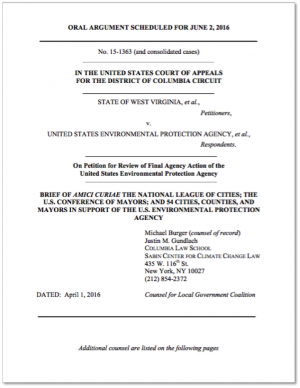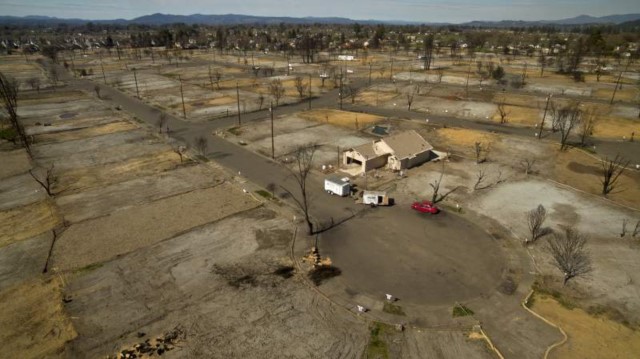Ethan I. Strell, Esq.
Associate Director & Fellow
Columbia Center for Climate Change Law
Earlier this week, the House of Representatives overwhelmingly approved a massive 1582-page, over $1 trillion consolidated appropriations bill. On page 706 of the current version of the bill, a one-sentence rider was inserted that would delay through next September implementation of one aspect of flood insura nce reform enacted in the Biggert-Waters Flood Insurance Reform Act of 2012.
nce reform enacted in the Biggert-Waters Flood Insurance Reform Act of 2012.
Biggert-Waters, in addition to reauthorizing and funding the flood insurance program for five years, requiring better flood mapping, and requiring FEMA to undertake various studies, also required that subsidized and grandfathered premiums be phased out, and that property owners begin to pay the true risk-based premium for their flood insurance.[1]
The amendment in the current spending bill, sponsored by Representative Bill Cassidy of Louisiana, delays through the end of the fiscal year just the portion of Biggert-Waters addressing premium increases due to re-mapping. The amendment reads in full as follows:
Sec. 572. None of the funds made available in this Act may be used to implement, carry out, administer, or enforce section 1308(h) of the National Flood Insurance Act of 1968 (42 U.S.C. 4015(h)).[2]
42 U.S.C. 4015(h), which was part of Biggert-Waters, requires an adjustment to a risk-based premium for properties in areas where the FIRM has been revised. Such increases were to be phased in over five years, at 20% each year.
Although the delay in the spending bill is only effective through the end of September when the federal fiscal year ends, the delay in the implementation of this reform will likely be longer, since FEMA will need time to begin work on its implementation through regulations and guidance.
In add ition to the partial delay inserted into the omnibus spending bill, other legislation has been introduced in Congress to more substantially delay implementation of Biggert-Waters reforms, notably a bill entitled the “Homeowner Flood Insurance Affordability Act,” sponsored by Senators Robert Menendez (D-NJ), Johnny Isakson (R-GA), and Mary Landrieu (D-LA).
ition to the partial delay inserted into the omnibus spending bill, other legislation has been introduced in Congress to more substantially delay implementation of Biggert-Waters reforms, notably a bill entitled the “Homeowner Flood Insurance Affordability Act,” sponsored by Senators Robert Menendez (D-NJ), Johnny Isakson (R-GA), and Mary Landrieu (D-LA).
[1] “Subsidized” properties are those that were built before a flood insurance rate map (or FIRM) was in place for that location, generally in the 1970s or ’80s. “Grandfathered” properties were built in compliance with an existing flood map at the time, but those maps have since been revised, putting those properties in a higher risk area. Biggert-Waters phases out discounts for subsidized and grandfathered properties.
[2] Rules Committee Print 113-32, House Amendment to the Senate Amendment to the Text of H.R. 3547, January 13, 2014, available at https://docs.house.gov/billsthisweek/20140113/CPRT-113-HPRT-RU00-h3547-hamdt2samdt_xml.pdf.



